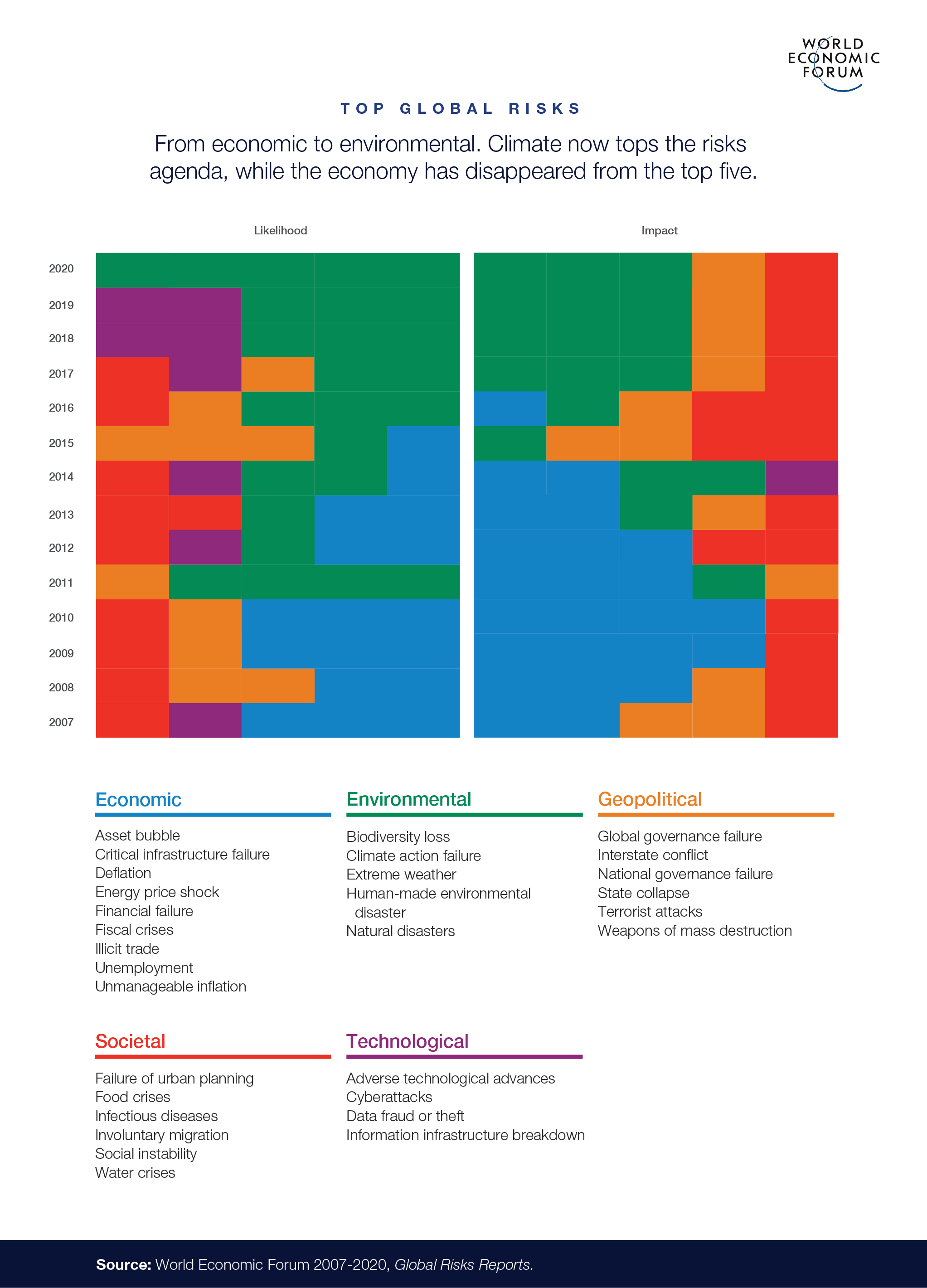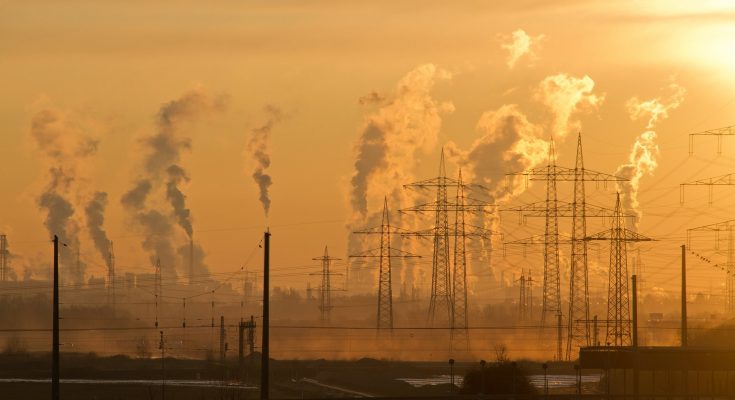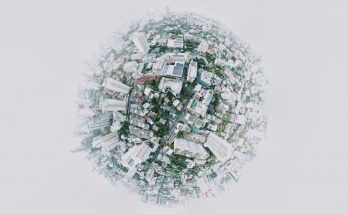According to Global Risks Report 2020, climate-related risks overshadow all other risks.
Last year the World Economic Forum’s Global Risks Report highlighted the increased interconnectedness of environmental, technological and demographic risks spiking all over the world.
This year the urgency of climate change is set to dominate everything: all five of the top global risks are climate related. Society needs a new “growth paradigm” that addresses the interconnectedness of socio-economic factors with climate change, while businesses need to adapt their metrics to assess the value of nature.

According to the report, the top five global risks in terms of likelihood and severity of impact are:
- Extreme weather events with major damage to property, infrastructure and loss of human life.
- Failure of climate-change mitigation and adaptation by government and business.
- Major biodiversity loss and ecosystem collapse (terrestrial or marine) with irreversible consequences for the environment, resulting in severely depleted resources for humankind as well as industries.
- Major natural disasters such as earthquakes, tsunamis, volcanic eruptions and geomagnetic storms.
- Human-made environmental damage and disasters, including environmental crime, such as oil spills and radioactive contamination.
As one can see, economic risks are absent from the top five risks outlined in the report. Emilio Granados Franco, Head of Global Risks and Geopolitical Agenda at the World Economic Forum, however, underlines that environmental and economic risks are inextricably linked. “Risk perceptions that account for only one over the other mean blind spots may be arising and integrated mitigation efforts may be lacking,” he warns.
Yet, the health of the planet seems to be alarming to younger generations. People born after 1980 ranked environmental risks higher than other respondents. Almost 90% of these respondents believe “extreme heat waves”, “destruction of ecosystems” and “health impacted by pollution” will be aggravated in 2020, compared to around 70% for other generations. They also believe that the impact from environmental risks by 2030 will be more catastrophic and more likely.
Peter Giger, Group Chief Risk Officer, Zurich Insurance Group, now urges businesses to develop metrics that assess the value of nature to their work. He highlights how the staggering loss of biodiversity – 83% of wild mammals and one-half the world’s plants – makes it harder for ecosystems to adapt to change. The degradation of wetlands, mangroves and coral reefs translate into insurance costs for local businesses. “Investment in sensible, ecological forestry practices would reduce insurance costs for sectors like power and water utilities that might be exposed to wildfire risks.”
Sandrine Dixson-Declève, Co-President of the Club of Rome, stresses that our “patterns of economic growth, development, production and consumption” have not only tipped ecosystems, but “created severe socio-economic hotspots and greater inequality”. She says: “The emergency is not just about ecological breakdown. It is about societal breakdown and acknowledging that as we urgently address the climate and biodiversity risks, we must simultaneously build new economic, social and financial systems”.
Next week world’s leaders are gathering in Davos to discuss key changes shaping business and society. Sustainability is their most urgent priority.
This article first appeared in MILESTONES | in business.
Image: Ralf Vetterle




